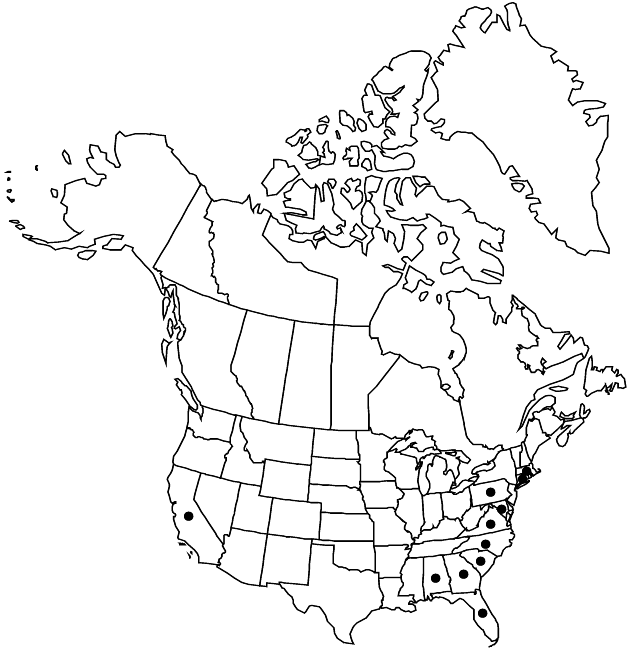Revision as of 15:35, 18 September 2019 by FNA>Volume Importer
Annuals, 30–100(–180+) cm. Leaf blades 80–150+ mm overall, lobes or leaflets 9–17+, narrowly lanceolate to lance-linear, 12–25(–50+) × (2–)4–7+ mm. Heads in ± corymbiform clusters. Peduncles 1–5+ mm. Involucres 7–10+ × 1.5–3 mm. Ray florets 1–3; laminae yellow, ± ovate to elliptic, 1–2 mm. Disc florets 3–5; corollas 3–4 mm. Cypselae (4.5–)6–7+ mm; pappi of 1–2 ± subulate scales 2–3+ mm plus 3–5 distinct, ovate to lanceolate scales 0.5–1 mm. 2n = 48.
Phenology: Flowering Sep–Oct.
Habitat: Disturbed sites
Elevation: 0–100+ m
Distribution

Ala., Calif., Conn., Fla., Ga., Md., Mass., N.C., Pa., S.C., Va., South America.
Discussion
Tagetes minuta is widely cultivated for use as a condiment and has become widely established or persists after plantings.
Selected References
None.
Lower Taxa
None.